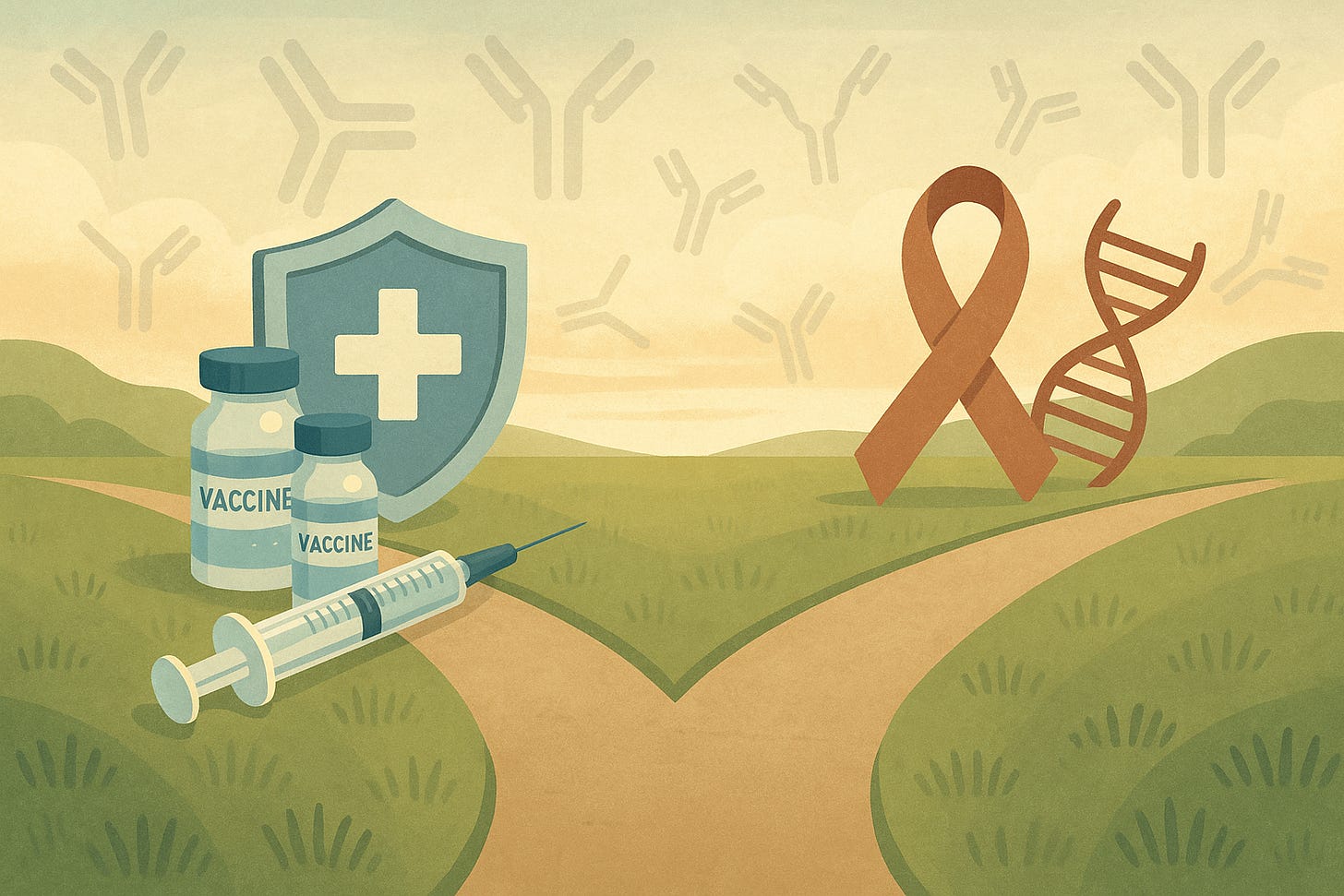Repeated COVID-19 Vaccination Linked to Poorer Outcomes in Pancreatic Cancer Patients
Could multiple COVID-19 boosters impact cancer prognosis? A new study raises critical questions.
Ever wondered how the medical breakthroughs we celebrate, like COVID-19 vaccines, might have unexpected effects on other aspects of health? A recent study from Japan has uncovered a surprising link between repeated COVID-19 vaccinations and poorer survival rates in pancreatic cancer patients. This finding hits close to home for anyone exploring ways to optimize health or support loved ones battling cancer, urging us to dig deeper into how these interventions interact with serious illnesses.
What’s the Big Idea?
This study, conducted at Miyagi Cancer Center, tackled a pressing question: How does repeated COVID-19 vaccination affect the prognosis of pancreatic cancer patients? Analyzing data from 272 patients between 2018 and 2023, researchers found that those who received three or more mRNA vaccine doses had significantly shorter overall survival compared to those with fewer doses. The key culprit appears to be elevated levels of IgG4, an immune-suppressing antibody that spikes with repeated vaccinations and correlates with worse outcomes in these patients.
Why Should You Care?
The implications of this research could ripple through personal health choices and clinical strategies. For pancreatic cancer patients—or anyone with a compromised immune system—this suggests that repeated boosters might unintentionally hinder cancer-fighting immunity by boosting IgG4, which can suppress vital anti-tumor responses. Long-term, this could affect healthspan by complicating cancer treatment outcomes. It also raises questions about balancing vaccination benefits against potential risks for specific populations, urging a closer look at personalized medical advice.
What’s Next on the Horizon?
This study opens the door to several urgent research paths. Future studies need to explore whether these effects hold true across other cancers or in larger, diverse cohorts. Innovations like tailored vaccination schedules or IgG4-monitoring tools could help mitigate risks. Practically, doctors and patients might need to discuss vaccination frequency on a case-by-case basis, while researchers investigate the exact mechanisms—such as regulatory T-cell (Treg) activity—that link IgG4 to poor prognosis. Lingering questions remain about whether vaccine type or prior COVID-19 infection alters these outcomes.
Safety, Ethics, and Caveats
Let’s be clear: this study isn’t saying COVID-19 vaccines are universally harmful. However, it highlights a potential risk for pancreatic cancer patients, where repeated doses correlate with poorer survival—a finding that demands caution. Ethically, there’s a need to weigh public health benefits of widespread vaccination against individual risks for vulnerable groups. Limitations include the study’s small, single-center sample (96 patients with IgG4 data), retrospective nature, and lack of control for factors like comorbidities or vaccine brand. It’s also not yet peer-reviewed, so results should be interpreted as preliminary. The authors themselves note, “Repeated vaccination is a poor prognostic factor in PC patients,” emphasizing the need for further validation.
What This Could Mean for You
While this research is early-stage, it offers a starting point for actionable steps, especially if you or a loved one are managing pancreatic cancer or another serious condition. Here’s what you can consider:
Discuss with Your Doctor: If you’re in a high-risk group, ask about the timing and necessity of additional COVID-19 boosters. Could spacing out doses or monitoring immune markers like IgG4 help?
Stay Informed on Age and Lifestyle Factors: The study didn’t find significant differences across age or gender, but older adults or those with poor nutritional status (like high NLR or low PNI scores) showed worse outcomes. Keep an eye on overall health metrics.
Monitor Updates: As this research evolves, look for larger studies that might confirm or refute these findings, especially for tailored guidance based on cancer type or treatment stage.
Remember, vaccines remain crucial for preventing severe COVID-19, so any decision should balance personal risks with broader benefits.
Explore the Full Study
For those eager to dive into the details, check out the original research paper, “Repeated COVID-19 Vaccination as a Poor Prognostic Factor in Pancreatic Cancer: A Retrospective, Single-Center Cohort Study” by Makoto Abue et al., available at Preprints.org.


